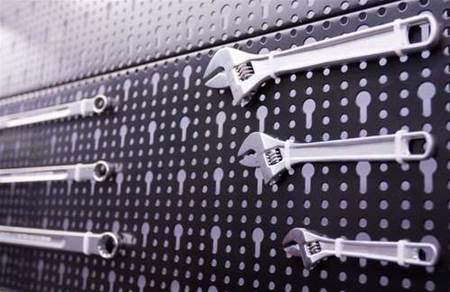IBM, HP, Apple, even our own Jon Honeyball: the list of people queuing up to wallop another nail into the PC’s coffin is growing. I realise as a writer for PC & Tech Authority I may sound like a turkey trade union leader voting to abolish Christmas, but they’re all – in my rarely humble opinion – wrong.
First, let’s start by deconstructing what the naysayers mean by a “post- PC era”. In the case of the late Steve Jobs, he seemed to be arguing that the PC will no longer be the primary device for accessing the internet at home. I couldn’t agree more.
Drivers and patches

With hindsight, it seems ludicrous that, for the best part of 15 years, people like my dad have had to install poorly coded drivers, download huge patches and pay annual protection money to antivirus firms, for a PC that takes two or three minutes to boot up, just so he can browse the web and read his emails. Compare that to the iPad experience: press the power button, swish the screen lock, dab the Safari logo, and you’re browsing the net in seconds.
For people like my dad it’s a no-brainer; for me it is too. The money I had mentally set aside for my triennial home laptop refresh has instead been lavished on an iPad 2, so I can benefit from instant-on browsing, read the electronic version of the SMH without having to brave the shops on a Saturday morning, and divert the kids from committing hara-kiri on long car journeys.
Does that mean my laptop will soon be joining the PlayStation 2 and the George Foreman grill in my loft? Does it hell.
Heavy lifting

For starters, I have to work for a living (those iPad 2s don’t pay for themselves, no matter what the more conspiracy minded commenters on the PC & Tech Authority website may think). Even if you could find a tablet keyboard that didn’t want to make you chew your eyebrows off in despair, you’d have to be insane to want to work full-time on a device with no file system (at least in the case of iOS), no access to company servers, and where “multitasking” means working in one app at a time. It’s only when you’re forced away from Microsoft Word and Outlook that you realise how irreplaceable they are: try to search for the email with the Excel spreadsheet your boss sent you last month using the iPad mail client. Go on, I dare you.
Then we come to all the other things we do with our PCs, such as digital photography and video. Yes, there are some superb photo-editing apps on tablets, some of which – such as Snapseed on iOS – can even handle the RAW files DSLR owners shoot. But there’s nothing to match the fine level of editing control offered by Photoshop Elements, let alone Lightroom or full-blown Photoshop. You won’t find a tablet with sufficient processing grunt and storage to edit HD video, let alone the software to do so.
Data warehouse

And what are we supposed to do with the hundreds of gigabytes, if not terabytes, of photos, videos and documents stored on our hard disks? Where are we going to keep it all? “Turns out that the cloud, in the shape of internet-hosted and provisioned services, is just fine at taking on that role for you,” argues Jon Honeyball. It’s rare that I disagree with Jon, but on this occasion he’s talking out of his Thunderbolt ports. Spotify is a wonderful service (if you live in a country where it works), but it’s only a substitute for your music collection if you don’t like The Beatles, Oasis or the gazillions of other artists not affiliated with the company. And you’d have to live somewhere with ubiquitous broadband/3G, which pretty much rules out Australia.
Neither will the typical broadband connection cope with full-scale migration of data to the cloud. I have 212GB of photos, music and other files I’d like to keep stored on my PC, all backed up to hard disk. If I were to follow Jon’s suggestion and shove this all into the cloud, at my maximum ADSL upload speed of 0.6Mbits/sec (I can’t get cable), it would take more than a month of solid uploading. In which time I’d have burst my ISP’s datacap four times over, and had to pay a company such as SugarSync $25 (or $250 for the year) to look after all my data. And as I established last month, trusting a single cloud company is folly, so you’ll want that data duplicated at twice the cost. $600 a year to replace a $100 hard disk? No thanks.
The PC isn’t dead to me, nor to the tens of thousands of programmers, enthusiasts and tinkerers who read this magazine. It isn’t even dead to my dad. It might not be flavour of the month, but force me to choose between my PC and my iPad, and I know which I’d keep.




.jpg&h=142&w=230&c=1&s=1)



_(27).jpg&h=142&w=230&c=1&s=1)




.jpg&w=100&c=1&s=0)








_(1).jpg&q=95&h=298&w=480&c=1&s=1)


